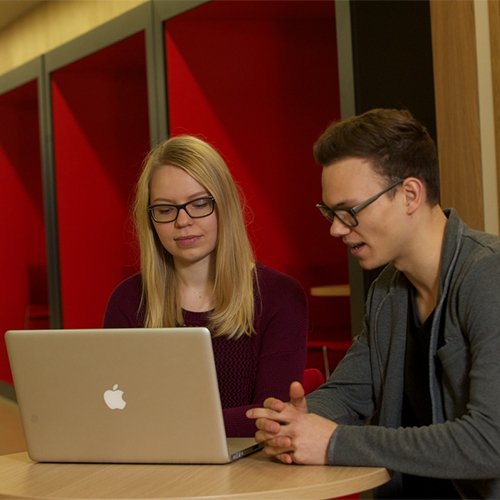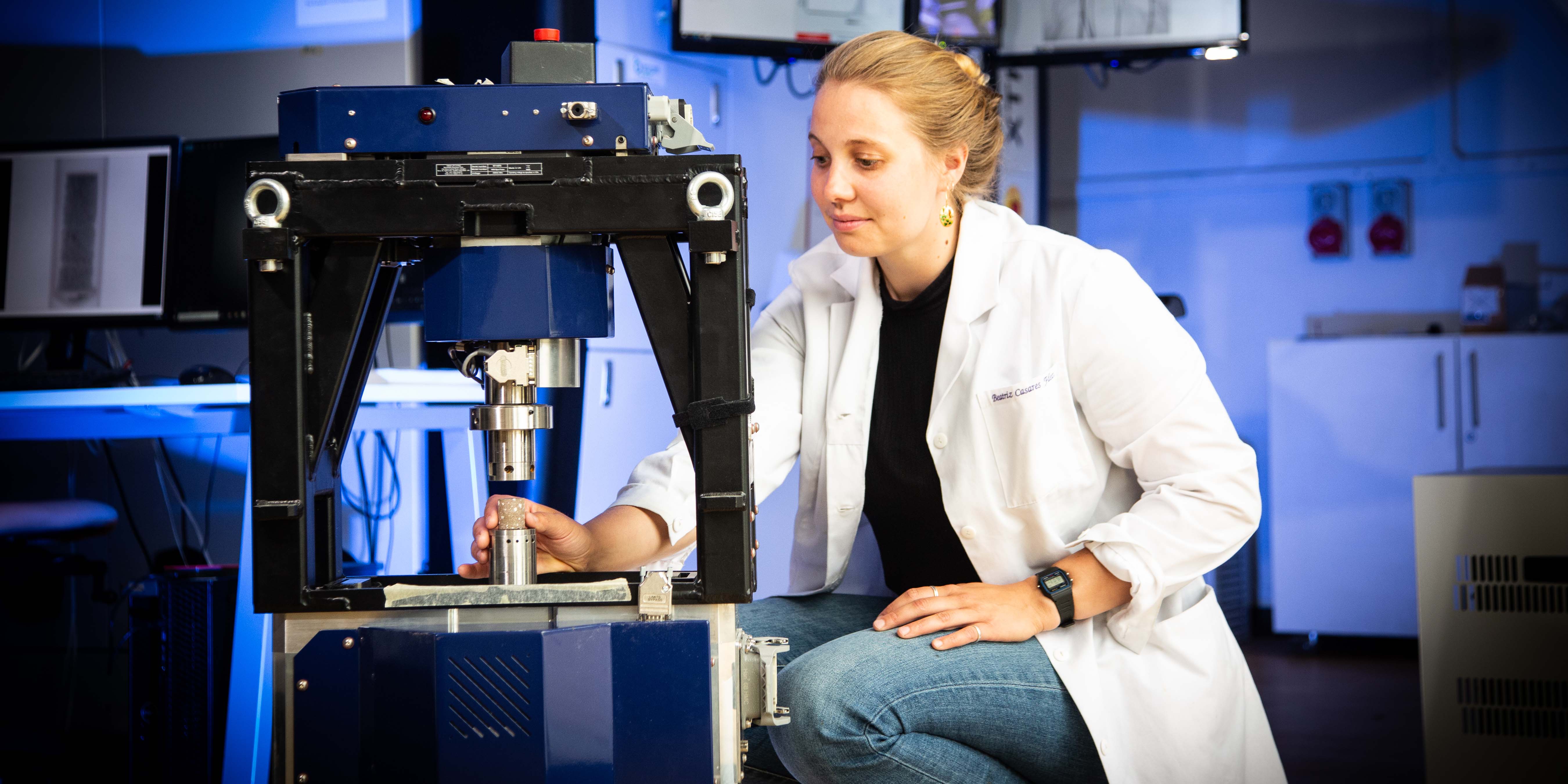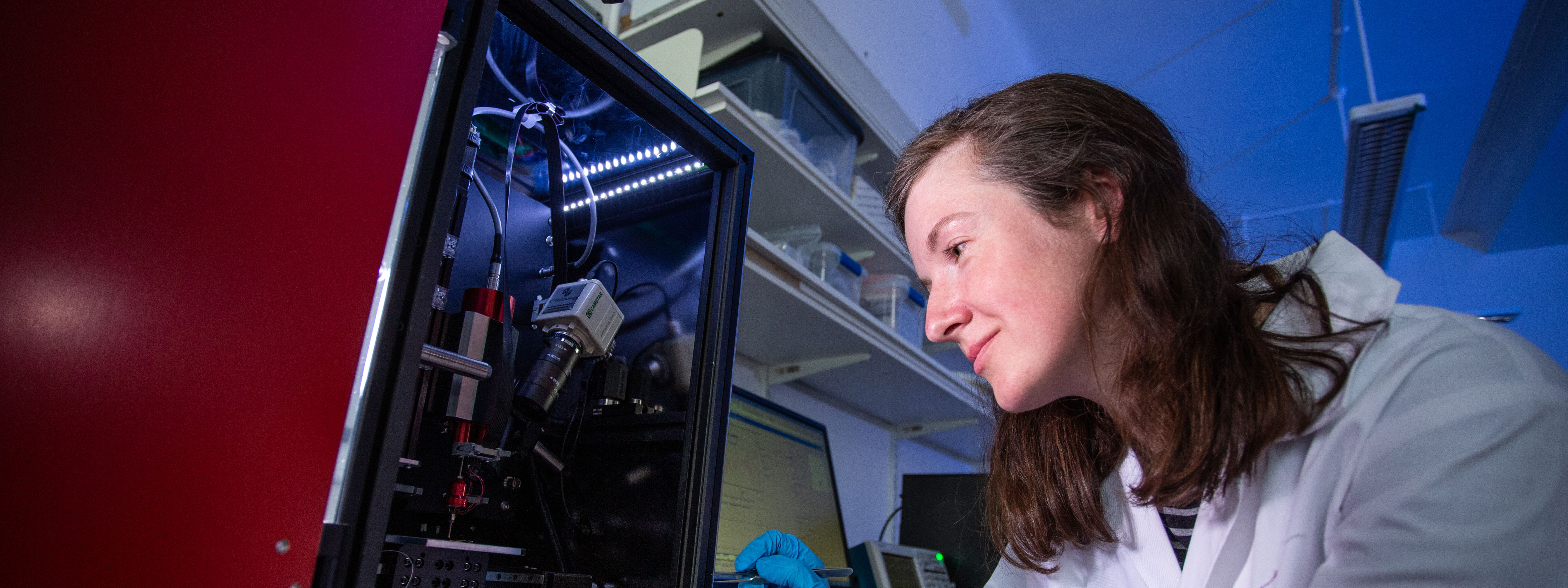
Faculty of EngineeringPostgraduate Research
Work with world-class researchers addressing societal challenges
Our Faculty of Engineering has over 600 postgraduate research students who study within our eight world-class departments, working on a variety of research topics, studying either for a PhD or EngD degree.
We have a growing research portfolio of £140 million. Our research has a global impact, making a positive difference to the world we live in and helping to solve some of the major problems that face society today.
The first step will be to choose a suitable research topic for your studies. You should then speak to the relevant department about where your research interests lie, and they can advise on whether this matches their research themes. Departmental staff will also be able to help those students who are unsure of what direction to go in with their research. It is often the case that departments will already have a list of PhD topics that they are seeking suitable candidates for, so if you are unsure of what topic to choose, then one of these may suit you, or at least inspire you into a similar research area.
Current opportunities
We have a number of current funded and unfunded PhD and postgraduate research opportunities in the Faculty of Engineering, which are open for applications.
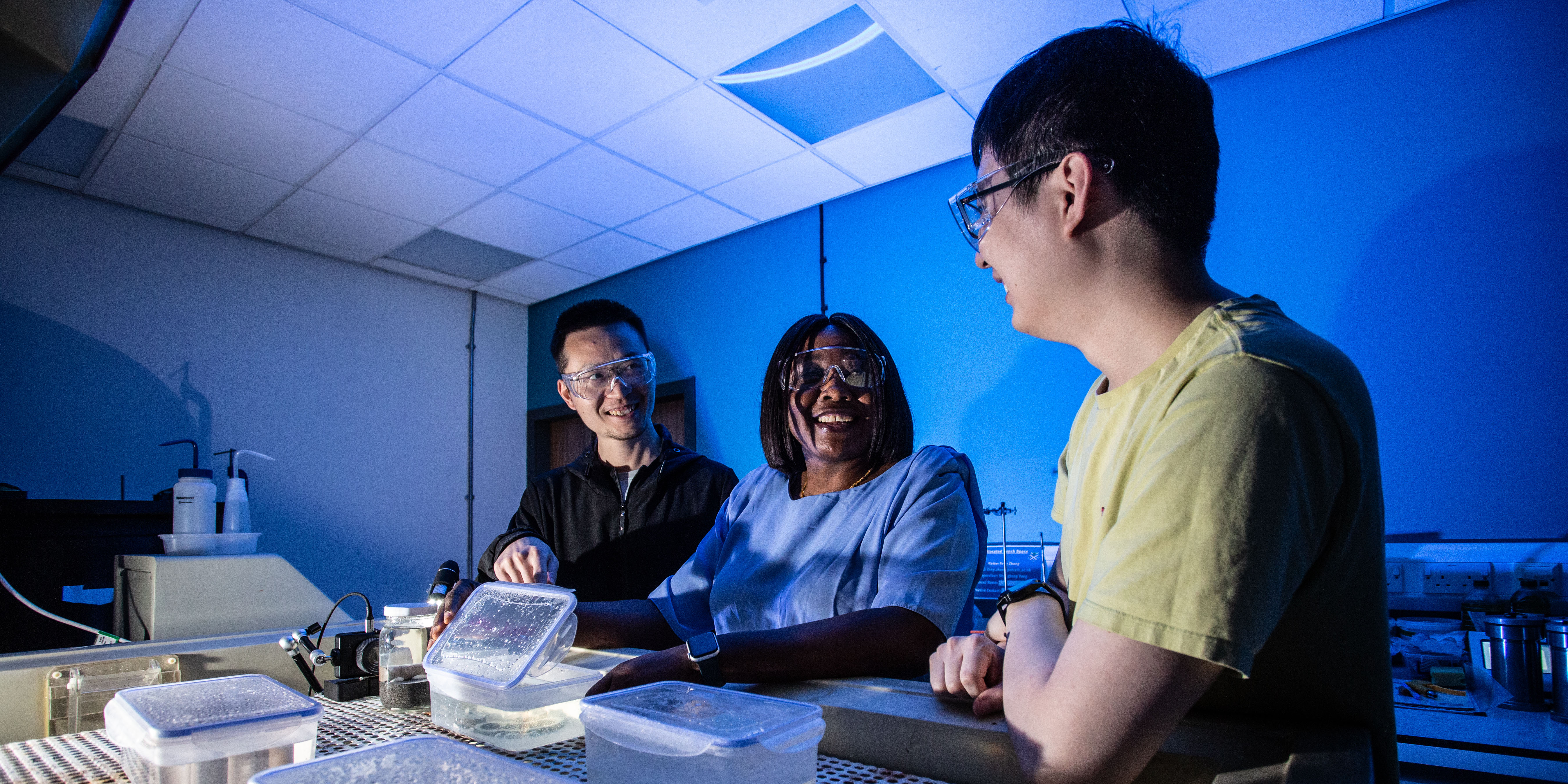
Research Excellence Framework (REF) 2021
Almost 90% of research produced by the University of Strathclyde has been rated 'world-leading' or 'internationally-excellent' in the Research Excellence Framework (REF) 2021. Our Engineering submission, which included the research of secen departments from the Faculty, has the joint highest impact quality profile in Scotland and joint highest environment quality profile in Scotland, based on GPA as calculated by THE. Our Architecture, Built Environment and Planning submission was rated 100% 'outstanding' for impact and was the only submission in the unit to achieve this.
What is a PhD?
PhD degree programmes enable students to undertake cutting edge research work for a period of 3-3.5 years within world-leading research teams. It is expected that the outcomes of this research will represent a significant and original advancement of knowledge in the chosen field and will be published in leading science and / or engineering journals, as well as in the form of an end of programme doctoral thesis.
What is an EngD?
The Engineering Doctorate scheme is a British postgraduate education programme promoted by the UK’s Engineering and Physical Sciences Research Council (EPSRC). EngD degree programmes combine pioneering research and advanced skills training, allowing students to work on cutting edge engineering or technology research and development work, pertaining to real industrial problems or needs. In year 1, students undertake a range of taught business and technical modules before progressing in year 2, to full-time research project work that is often carried out with an industrial partner. An EngD programme is studied over four years.
What is the difference between a PhD and EngD?
An EngD programme is different from a PhD programme as it is studied over four years rather than three and there is greater industry involvement throughout. PhD programmes can also be studied on a full-time or part-time basis, whereas an EngD programme is only available on a full-time basis.
Each Department within the Faculty has their own research themes and groupings and a variety of current PhD and often EngD opportunities that students can choose from to base their research on.
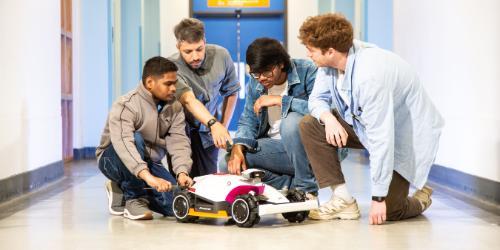
Find out more about the postgraduate research options offered in our departments
Strathclyde Doctoral School
Strathclyde Doctoral School provides a vibrant and comprehensive student-centred research and training environment in order to grow and support current and future research talent.
The School encompasses our four Faculties and is committed to enriching the student experience, intensifying research outputs and opportunities, and ensuring training is at the highest level. As a postgraduate researcher you'll automatically become a member of the Strathclyde Doctoral School.
Highly Ranked Departments
- Product Design – Ranked Number 2 in the UK by the Guardian University Guide 2026
- Manufacturing & Production Engineering – Ranked Number 6 in the UK by The Complete University Guide 2026
- Marine/ Ocean Engineering – Ranked Number 3 in Europe and Number 10 in the world by Shanghai Ranking's Academic Ranking of World Universities 2025
- Electronic and Electrical Engineering – Ranked Number 6 in the UK (and Number 1 in Scotland) by The Times/ Sunday Times Good University Guide 2026
- Medical Technology and Bioengineering - Ranked Number 6 in the UK by The Complete University Guide 2026
- Bioengineering and Biomedical Engineering – Ranked Number 8 in the UK for Biomedical Engineering by The Times/Sunday Times Good University Guide 2026
- Civil Engineering – Ranked Number 7 in the UK by the Times/Sunday Times Good University Guide 2026
- Chemical Engineering - Ranked Number 7 in the UK by The Times/ Sunday Times Good University Guide 2026
- Mechanical Engineering - Ranked Number 9 in the UK by The Times/ Sunday Times Good University Guide 2026
- General Engineering - Ranked Number 8 in the UK by The Times/ Sunday Times Good University Guide 2026
Our postgraduate research students
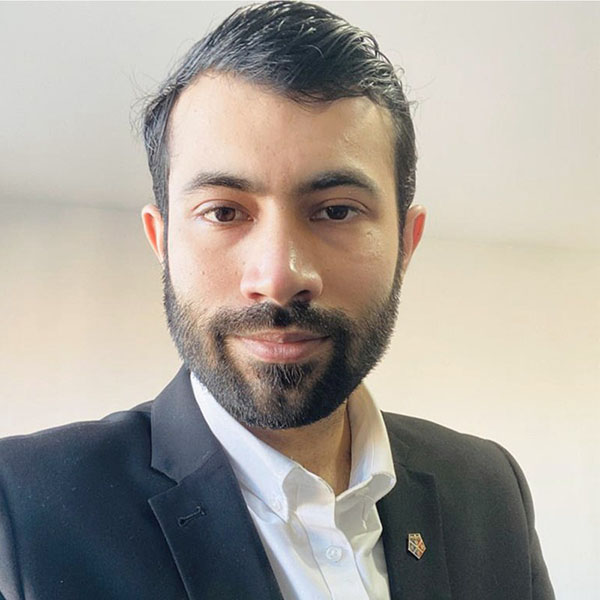
Anosh Nadeem Butt
Architecture (PhD)
My favourite aspect of studying at Strathclyde is the excellent support from the academic and research staff in the Department of Architecture, the Faculty of Engineering, and the University of Strathclyde.
_500x500.jpg)
Victoria Sykes
EngD Wind and Marine Energy Systems and Structures
I always recommend Strathclyde especially if it is an Engineering degree you are after. There are so many different degrees, facilities and opportunities in the University.
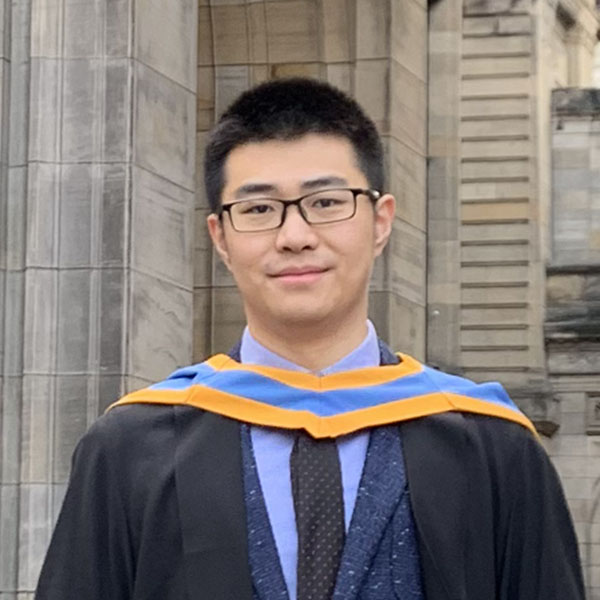
Xuran Xiao
Mechanical Engineering (PhD)
Studying at Strathclyde has been a remarkable experience for me. I have enjoyed everything, but what I have liked the most is the organisation and structure of the courses. You are able to study every aspect of engineering, from the theory involved to practical elements.
Chat to a student ambassador
Want to know more about what it’s like to be a Strathclyde Engineering student at the University of Strathclyde? A selection of our current students are here to help!
Our Unibuddy ambassadors can answer all the questions you may have about their course experiences and studying at Strathclyde, along with offering insight into life in Glasgow and Scotland.
